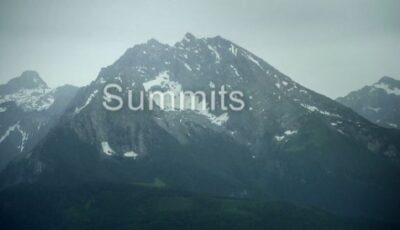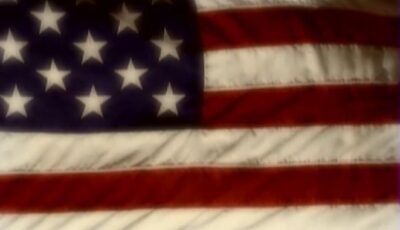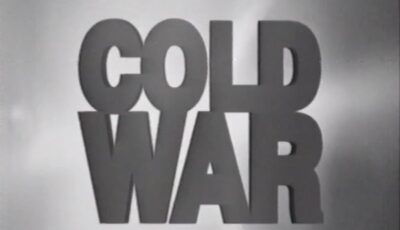Synopsis
David Reynolds uncovers the story of three summit meetings that shaped the modern world. He sees how Reagan and Gorbachev helped ensure a peaceful end to the Cold War.
- Programme: Summits
- Episode: 3: Geneva 1985
- Channel: BBC Four
- Broadcast year: 2008
- History
Licence: ERA Licence required
UK only
Staff and students of licensed education establishments only
Cannot be adapted
Add Notes
More clips from Summits

1: Munich 1938 | Summits
1: Munich 1938 | Summits
David Reynolds uncovers the story of three summit meetings that have shaped the modern world. He examines Chamberlain's hubristic misreading of Hitl...

2: Vienna 1961 | Summits
2: Vienna 1961 | Summits
David Reynolds uncovers the story of three summit meetings that shaped the modern world. How Kennedy and Khrushchev's meeting in Vienna in 1961 near...

1: Munich 1938 | Summits
1: Munich 1938 | Summits
David Reynolds uncovers the story of three summit meetings that have shaped the modern world. He examines Chamberlain's hubristic misreading of Hitl...

2: Vienna 1961 | Summits
2: Vienna 1961 | Summits
David Reynolds uncovers the story of three summit meetings that shaped the modern world. How Kennedy and Khrushchev's meeting in Vienna in 1961 near...

1: Munich 1938 | Summits
1: Munich 1938 | Summits
David Reynolds uncovers the story of three summit meetings that have shaped the modern world. He examines Chamberlain's hubristic misreading of Hitl...

2: Vienna 1961 | Summits
2: Vienna 1961 | Summits
David Reynolds uncovers the story of three summit meetings that shaped the modern world. How Kennedy and Khrushchev's meeting in Vienna in 1961 near...

1: Munich 1938 | Summits
1: Munich 1938 | Summits
David Reynolds uncovers the story of three summit meetings that have shaped the modern world. He examines Chamberlain's hubristic misreading of Hitl...

2: Vienna 1961 | Summits
2: Vienna 1961 | Summits
David Reynolds uncovers the story of three summit meetings that shaped the modern world. How Kennedy and Khrushchev's meeting in Vienna in 1961 near...
More resources about The Cold War

1: Lyndon Johnson's War | Wheeler on America
1: Lyndon Johnson's War | Wheeler on America
A look back at the classic series Wheeler on America from 1996. Charles Wheeler traces changes in US society since the liberal r...

10: Cuba: 1959-1962 | Cold War
10: Cuba: 1959-1962 | Cold War
Fidel Castro comes to power following the Cuban Revolution. Cuba aligns itself with the Soviet Union and the government starts nationalising A...

11: Vietnam: 1954-1968 | Cold War
11: Vietnam: 1954-1968 | Cold War
After losing the Battle of Dien Bien Phu the French leave Vietnam. A stream of refugees flee to the south after the Communist north institu...

12: MAD: 1960-1972 | Cold War
12: MAD: 1960-1972 | Cold War
The United States nuclear strategy of counterforce, intended to counter a Soviet conventional attack by targeting military facilities, is discr...

14: Red Spring: 1960s | Cold War
14: Red Spring: 1960s | Cold War
Likewise the Soviet Union started the decade with growing openness and optimism. There was also an emerging cohort of youth with no memory o...

15: China: 1949-1972 | Cold War
15: China: 1949-1972 | Cold War
Following the Chinese Revolution Mao Zedong aligns China firmly with the Soviet Union. China becomes the recipient of Soviet aid, supports Co...

16: Détente: 1969-1975
16: Détente: 1969-1975
Nixon builds closer relations with China and the USSR, hoping to leverage an honourable US exit from Indochina. The Soviet Union is fearful of a US-C...

17: Good Guys, Bad Guys: 1967-1978 | Cold War
17: Good Guys, Bad Guys: 1967-1978 | Cold War
Under Détente the superpowers continued their rivalry, but carefully avoided direct conflict by courting allies in the developi...

18: Backyard: 1954-1990 | Cold War
18: Backyard: 1954-1990 | Cold War
The United States saw the emergence of leftist movements in different Latin American countries as threatening to its commercial interests,...

19: Freeze: 1977-1981 | Cold War
19: Freeze: 1977-1981 | Cold War
Carter's ambitious proposals for total multilateral nuclear disarmament are rejected by Brezhnev; his championing of human rights does not w...

2: Iron Curtain: 1945-1947 | Cold War
2: Iron Curtain: 1945-1947 | Cold War
The wartime allies demobilise - the United States enjoys its economic strength and resurgence while Britain and the rest of Europe is e...

2: Vienna 1961 | Summits
2: Vienna 1961 | Summits
David Reynolds uncovers the story of three summit meetings that shaped the modern world. How Kennedy and Khrushchev's meeting in Vienna in 1961 near...

20: Soldiers of God: 1975-1988 | Cold War
20: Soldiers of God: 1975-1988 | Cold War
Nur Mohammad Taraki comes to power in Afghanistan and attempts to modernise the country on Marxist-Leninist lines, provoking a rebe...

21: Spies: 1944-1994 | Cold War
21: Spies: 1944-1994 | Cold War
Throughout the Cold War both sides sought intelligence about their opponents using spies, satellites and other means. For political reasons, ...

22: Star Wars: 1981-1988 | Cold War
22: Star Wars: 1981-1988 | Cold War
Reagan's 1983 ''Evil Empire'' speech sets the tone for a more aggressive US posture against the Soviet Union, and the costly arms race is...

23: The Wall Comes Down: 1989 | Cold War
23: The Wall Comes Down: 1989 | Cold War
Gorbachev makes clear Eastern European countries were free to determine their own destinies. In Poland Solidarity enters into negoti...

3: Marshall Plan: 1947-1952 | Cold War
3: Marshall Plan: 1947-1952 | Cold War
For both altruistic and self-serving purposes, the United States provides massive grants of aid to the countries of Europe in the form...

4: Berlin: 1948-1949 | Cold War
4: Berlin: 1948-1949 | Cold War
By 1947, the United States placed as a high priority the revival of the German economy, an approach opposed by the Soviet Union. After the in...

5: Korea: 1949-1953 | Cold War
5: Korea: 1949-1953 | Cold War
Korea after the Second World War was occupied by both the Soviets and the Americans, who respectively installed Kim Il Sung and Syngman Rhee a...

6: Reds: 1948-1953 | Cold War
6: Reds: 1948-1953 | Cold War
The fears the leadership of both sides had were projected inwards towards their own people. In the United States the House Committee on Un-Amer...
